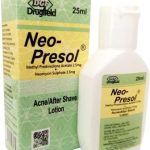
Selecting the right certificate in substance abuse course is an important step for individuals looking to advance their careers in healthcare or counseling. UNT Health Fort Worth offers programs designed to equip students with the knowledge and practical skills needed to support patients facing addiction challenges. By focusing on health education, health research, and health care, the institution provides a strong foundation for professional growth in this specialized field.
Assess Your Career Goals
The first step in choosing a substance abuse certificate is to clearly define your career objectives. Are you looking to work directly with patients as a counselor, support professional, or case manager? Or is your goal to enhance your credentials as a nurse, social worker, or healthcare provider? Understanding your intended role will help you select a program that aligns with the skills and knowledge you need to succeed.
Consider Program Content and Focus
Not all certificate programs are created equal. Some may emphasize counseling techniques and behavioral interventions, while others focus on clinical assessment, treatment planning, and medication management. Review the curriculum carefully to ensure it covers the topics most relevant to your career path. Programs that offer a mix of theoretical knowledge and practical experience are especially valuable for developing hands-on skills.
Check for Accreditation and Recognition
Accreditation ensures that a program meets established standards of quality and is recognized by employers in the field. Choosing an accredited certificate program can increase your credibility and improve job prospects. Look for courses that are approved by recognized professional organizations or healthcare boards, as this often indicates a high level of training and adherence to industry standards.
Evaluate Flexibility and Delivery Methods
Depending on your schedule, you may prefer a program that offers online, in-person, or hybrid learning options. Online courses can provide flexibility for working professionals, while in-person programs may offer more hands-on clinical experience. Consider the format that best suits your learning style and allows you to balance education with personal and professional commitments.
Assess Practical Training Opportunities
Hands-on experience is critical in substance abuse education. Programs that include supervised fieldwork, internships, or clinical placements allow students to apply their knowledge in real-world settings. Practical training helps develop confidence in working with patients, enhances communication skills, and provides valuable insight into the day-to-day responsibilities of professionals in the field.
Review Support Services and Resources
Support services, such as academic advising, mentorship, and career counseling, can enhance your learning experience and help you achieve your professional goals. Additionally, access to research resources, workshops, and networking opportunities can provide a competitive advantage when entering the workforce.
Consider Cost and Time Commitment
Finally, evaluate the program’s duration and cost. Certificate programs vary in length, often ranging from a few months to a year. Determine how much time and financial investment you are willing to make and choose a program that offers strong value while meeting your career objectives.
Conclusion
Choosing the right certificate in substance abuse requires careful consideration of your goals, program content, accreditation, learning format, and practical experience. Programs like those offered by UNT Health provide comprehensive training grounded in health education, research, and care. By selecting a program aligned with your professional objectives, you can gain the knowledge, skills, and confidence needed to make a meaningful impact in supporting patients with addiction challenges.





